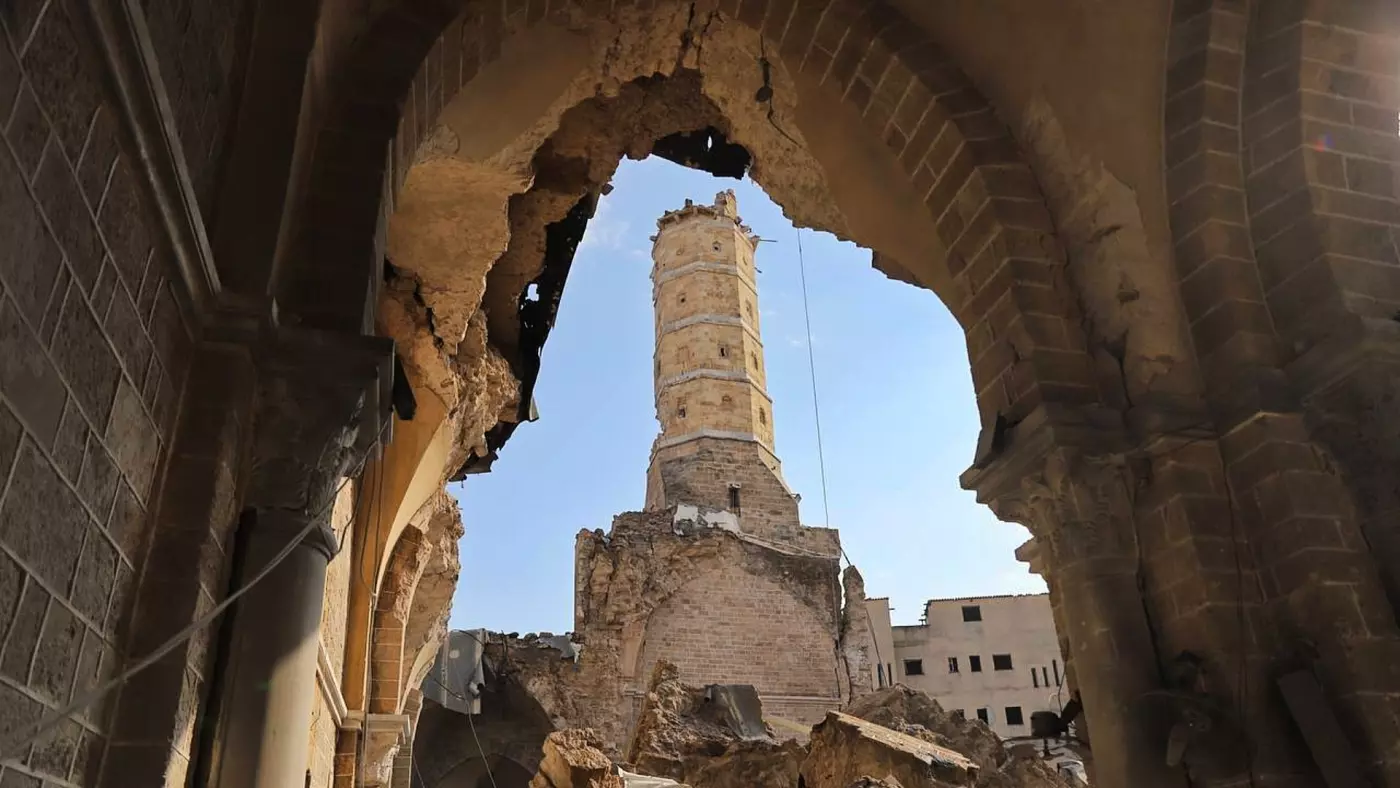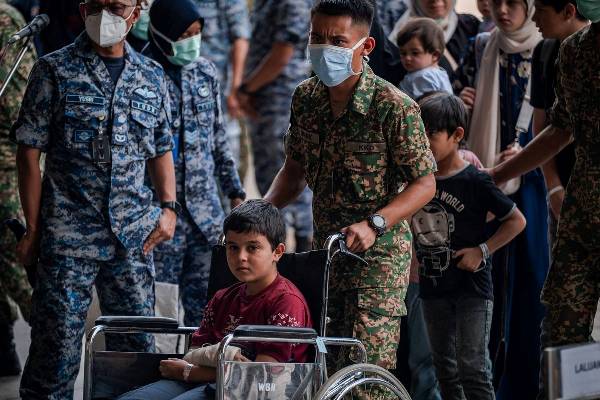Beginning on 7 October, “Israel at war” became the leading headline broadcast around the clock on global news channels. But for international audiences, the recent Israeli aggression transcends being merely breaking news; it has become a devastating glimpse into the daily lives of the Palestinians.
While Palestinian suffering, death, and destruction was a story most outlets had long ignored or taken for granted, the novel and unexpected development that day was in the surprise attack against Israel, during which more than 1,400 Israelis were killed.
The attack by Palestinian armed factions in 1948 territories marked a notable shift in the Israeli-Palestinian conflict, particularly since 1973. Not only did it result in the loss of Israeli soldiers and civilians’ lives, it also shattered the illusion that a solution to the Palestinian question could be reached without Palestinians.
To employ the infamous “Rumsfeld matrix“, for Israel, the US, and countries in the region, the attack served as a poignant reminder of the “known knowns”: the existence of Palestinians.
Follow Middle East Eye’s live coverage for all the latest on the Israel-Palestine war
It further underscored the “known unknowns” – making it evident that Israel’s apartheid regime will perpetuate a state of uninterrupted war; the “unknown knowns” – wherein, irrespective of the weakness of the occupied, the resistance will persist as long as the occupation endures; and, finally, it brought the “unknown unknowns” to the world’s attention – shedding light on the potential consequences of providing Israel with unconditional and unaccountable support in the context of Middle Eastern and global geopolitics.
No surprise
Within the information that was “known” or expected, the mainstream media discourse swiftly drew comparisons between the 7 October incident and the 9/11 attacks, sometimes describing it as a failure of intelligence.
It is worth noting that 9/11 was an attack that defied all expectations, pushing the boundaries of plausibility even in the context of contemporary science fiction. Similarly, the 7 October operation was unprecedented in both scale and execution. However, in the face of such a brutal occupation, the rebellion could hardly be considered a surprise.
While the 7 October operation was unprecedented in both scale and execution, in the face of such a brutal occupation the rebellion could hardly be considered a surprise
Israel’s actions during the past two decades in particular have decimated any hopes for a political resolution. Apartheid policies not only obliterated any semblance of Palestinian territorial integrity, but also expanded its military-backed colonies across every inch of the remaining Palestinian land.
Furthermore, Israel’s decision to transform Gaza into, at best, an “open-air prison” or, more accurately, a “concentration camp”, has added to the longstanding injustices.
In essence, no level of motivation, organisation, or preparation could have primed the events more effectively than the deeply entrenched practices of Israel’s apartheid state.
Beyond Israel’s brutal occupation policies, a perhaps more critical issue is Tel Aviv’s persistent denial of the very Palestinian presence in any context that could potentially alter the existing status quo. Within American and Israeli political circles, it has become a prevailing cliche that Palestinians, especially armed Palestinian factions, deny Israel’s “right to exist”.
For those dwelling on the occupied lands, this rhetoric essentially serves as a means of verbal resistance. But for Israel, it’s not confined to rhetoric; it is a daily ritual of denial. Until Israel reconciles with the existence of Palestinians and accords them due recognition, either a political or a military resolution to the ongoing crisis will remain elusive.
By eradicating every conceivable path to a two-state solution, Israel has cemented its status as an apartheid state, with Palestine hardly factoring into the equation, neither in the calculations of its political leadership nor within the collective consciousness of its broader society.
In fact, Palestinians had barely registered on their radar, neither as individuals nor as a pressing political dilemma.
In Israeli Defence Minister Yoav Gallant’s dehumanisation of Palestinians, he called them “human animals” and advocated a “total blockade” of Gaza.
The turmoil of Israel’s domestic political mind; the evident crisis and even political bankruptcy of the unelected Palestinian Authority; Hamas’s lack of tools and experience to transform its armed presence into an inclusive political entity for all Palestinians and legitimate counterpart for the world; the decades-long wars and democracy crisis in countries in the region; America’s highly ideological and theological alignment towards Israel which fully negates its role as a mediator; and Europe’s geopolitical insignificance are more than sufficient to render the current crisis an impasse.
Washington’s credibility crisis
The current landscape is undeniably bleak and disheartening. Yet, amid this prevailing air of pessimism, 7 October could mark a significant reset in both the Palestinian predicament and the region’s geopolitics.
First and foremost, Palestinians need to recognise that, while the hardships they’ve endured for decades may not come to an end in the near future, there is potential for a difference and a new era in the aftermath of this war.
It would be a grave error to reduce these latest events into a Gaza issue, or simply a means for prisoner exchange, a precarious security deal with Israel, or other temporary resolutions
They have unequivocally proven their existence to the world – especially to Israel, US and regional nations, though this has come at a profound human cost. To avert the perpetuation of the tragic loss of civilian lives in Israel and Gaza and rekindle hopes for a resolution, Palestinian factions are in dire need of a fresh national political perspective and leadership.
It would be a grave error to reduce these latest events into a Gaza issue, or simply a means for prisoner exchange or to reach a precarious security deal with Israel or other temporary resolutions and gains from neighbouring countries.
When examining the responses from both Washington and Europe to the ongoing crisis, one may find little cause for optimism. Furthermore, US Secretary of State Antony Blinken’s comment, “I’m here as a Jew in Israel,” amid America’s staunch ideological and military support, appears as an ill-considered remark that accentuates ethnic and religious divides.
This is especially concerning given that Washington’s Middle East policy is heavily Israel-centric, raising the peril of aligning global politics with Israeli-focused American geopolitics. The potential for America and Europe to play substantial roles in Middle East geopolitics hinges on their ability to move beyond Israel’s attempt to reduce the events of 7 October to a mere reprisal.
In a world where global geopolitical competition and crises escalate daily, there exists significant doubt about President Joe Biden’s political acumen and geopolitical sagacity to transcend the level of statesmanship criticised and derided during the Trump era.
Notably, the Biden administration has fallen behind the collective conscience of a wide Jewish demographic, which has been openly critical of Prime Minister Benjamin Netanyahu’s policies on Israeli streets for months.
It now appears that the US administration is aligning itself with what Edward Said once referred to as the axis of “American Zionism”. Retaliation and pursuit of revenge have consistently failed to yield a political resolution in the Middle East. The potential disaster lies in the event where America’s worldwide sagacity stoops to the vindictive mentality of Netanyahu.
Recent bigoted proclamations by US politicians in the wake of this recent war, which stand out even in the post-9/11 context, reflect a noticeable shift in American policy.
Across the political spectrum, whether it is President Biden falsely claiming to have viewed photos of “beheaded” Israeli babies or Senator Lindsay Graham explicitly calling for “bombing Iran” – underscored by his declaration that “We’re in a religious war here… Level the place” – undeniably signal a noteworthy transformation in the tenor of American response.
This scenario poses substantial geopolitical and security risks, extending beyond the region to global power competition. Overcoming Israel’s crisis cannot be achieved by Washington solely through dealings with Netanyahu.
Similarly, resolving the Israeli issue cannot be addressed through the Gulf’s myopic and reckless remedies, or through transactional engagement with Egypt, which regards Palestinian issue as instruments and security matters in their interactions with Israel, all while grappling with internal political and economic turmoil.
The US must begin seeking answers regarding the Palestinians’ future by engaging Palestinian actors. It should involve countries such as Turkey and Qatar, which maintain robust communications with Palestinian stakeholders, as well as regional players like the Gulf states and Egypt with a roadmap.
On 16 October, Turkish Foreign Minister Hakan Fidan articulated during a press briefing in Ankara a formula for implementing a “guarantor states” framework to oversee a two-state resolution for the Israel-Palestine conflict.
Fidan underscored that this proposition had been broached in various diplomatic engagements. Fidan stressed that the guarantor nations for the Palestinian side should originate from the region, with Turkey prominently included.
“Upon reaching an agreement accepted by both parties, the guarantor countries will assume responsibility for ensuring compliance with the agreed-upon provisions,” he said.
At this juncture, an alternative to seemingly naive roadmaps and new openings may lie in swiftly relocating global geopolitical competition to the region. Under such circumstances, the Netanyahu administration would recede into a historical footnote, and the repercussions of ensuing turmoil would be considerably more severe.
The current crisis presents a dire situation where depending on Israel’s benevolence is unwise, and it must not be subject to America’s sole discretion.
Over the last 10 days, we’ve witnessed how the crisis, under the purview of the American-Israeli alliance, has the potential to escalate into a disaster for Gaza, an eruption of conflicts in the region, and result in significant global security challenges.
The horrific and genocidal hospital massacre in Gaza was an outcome of the unwavering endorsement of Israel’s occupation as “right to defend” that both Biden and European leaders seem to derive immense satisfaction from emphasising.
Post Disclaimer | Support Us
Support Us
The sailanmuslim.com web site entirely supported by individual donors and well wishers. If you regularly visit this site and wish to show your appreciation, or if you wish to see further development of sailanmuslim.com, please donate us
IMPORTANT : All content hosted on sailanmuslim.com is solely for non-commercial purposes and with the permission of original copyright holders. Any other use of the hosted content, such as for financial gain, requires express approval from the copyright owners.
 Sri lanka Muslims Web Portal Sri Lanka Muslims News Center
Sri lanka Muslims Web Portal Sri Lanka Muslims News Center


 Donate
Donate


